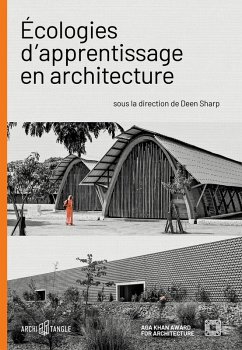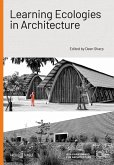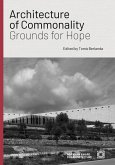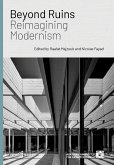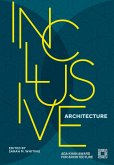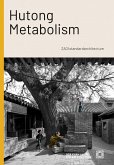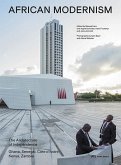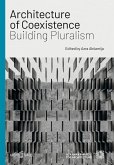Learning Ecologies in Architecture, edited by Deen Sharp, explores how exemplary educational buildings actively shape, and are shaped by, their ecological contexts through processes of translation, research, innovation, and collaboration. These ecologies are not only environmental but encompass dynamic interactions between people, organisations, and material resources, to bring educational spaces into being. Good educational design has always extended beyond the boundaries of the building, fostering and addressing the individual learners in the classroom as well as the community and contexts that nurture them. The book is guided by two Senegalese projects that won the Aga Khan Award for Architecture (in 2019 and 2022 respectively): the Alioune Diop University Teaching and Research Unit designed by IDOM and the Kamanar Secondary School by Dawoffice. These projects exemplify architecture both as a process of civic engagement, where architects purposefully involve communities, and as an environmentally conscious and responsive endeavour, applying sustainability principles and process in resource-constrained contexts. By delving into these case studies, the book interrogates the legacy and philosophy of educational design, the critical debates and practices in relation to participatory architecture, and the intricacies of representation and materiality. The first section of the book examines the historical legacies and contexts of educational architecture, with an emphasis on Africa. It traces how the design and construction of university institutions have played a pivotal role in postcolonial nation-building and identity. This historic perspective provides a foundation for analysing contemporary efforts to further meaningful civic engagement in educational design. Several contributors critically assess the successes and limitations of civic engagement in architecture, exploring the work needed to ensure that translation, participation, and collaboration leadto meaningful change. Representation and materiality remain central to the design of educational institutions, shaping how spaces reflect cultural identity and pedagogical values. Learning Ecologies presents new frameworks for thinking about these themes in a more synthetic and integrated manner. With contributions by Jonathan Kplorla Agbeh, Christian Paul "Zigato" Agboada, Christian Benimana, Dawoffice, Katherine Dawson, Farrokh Derakhshani, Souleymane Bachir Diagne, Christian Hedrick, Anna Heringer, IDOM, Farhan Karim, Timothy Latim, Lesley Lokko, Tubi Otitooluwa, Deen Sharp, Mamadou Jean-Charles Tall, Justicia Tegyeka and Ola Uduku.Beyond Ruins: Reimagining Modernism explores the potential of modern architecture renovation in the Global South as a catalyst for self-determination and community-building.The volume presents case studies, conversations, and visual essays by international experts in architecture, governance, regenerative design, contemporary art, philosophy, and gaming. These contributions examine recent heritage renovation as a scaffold for local coauthorship of the built environment, and as a way of coming to terms with the region's postcolonial nation-building projects of the mid-twentieth century. The starting point for the book's contributions is the Oscar Niemeyer Guest House renovation project in Tripoli, Lebanon, by the Beirut-based East Architecture Studio-a recipient of the Aga Khan Award for Architecture. The main focus here was to uncover the history of the site and to foreground the political climates of such postcolonial nation-building projects.The publication addresses contemporary heritage challenges, questions renovation trends, and reveals gaps in historicization and archiving. It reflects on the need for new architectural operations due to a lack of infrastructure and emphasizes the materiality of renovation projects, encouraging discussions on craft, manufacturing, growth, aging, and hybridity.Beyond Ruins: Reimagining Moderni
Bitte wählen Sie Ihr Anliegen aus.
Rechnungen
Retourenschein anfordern
Bestellstatus
Storno

